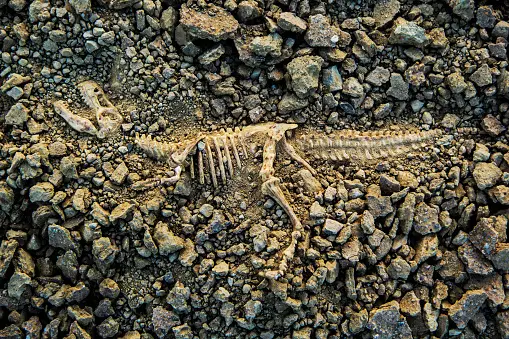
Paleontology, the scientific study of ancient life through the examination of fossils, has captivated the imaginations of many. If you’re passionate about uncovering the mysteries of our planet’s history and fascinated by the world of dinosaurs and prehistoric creatures, then studying paleontology might be the perfect path for you
Introduction: The Fascinating World of Paleontology
Paleontology unlocks the secrets of Earth’s past, allowing us to reconstruct ancient ecosystems, understand evolution, and gain insights into the diverse range of life forms that have inhabited our planet. By studying fossils, paleontologists piece together the history of life, from the simplest microorganisms to the majestic dinosaurs that once roamed the Earth. Now, let’s delve into the ten ways you can dive into the world of paleontology in 2023.
Pursue a Degree in Paleontology
One of the most comprehensive and structured ways to study paleontology is by pursuing a degree in the field. Several universities and institutions offer undergraduate and graduate programs in paleontology. These programs provide a solid foundation in geology, biology, and other relevant sciences, equipping you with the necessary knowledge and skills to become a paleontologist.
Join a Paleontological Society or Club
Connecting with like-minded individuals who share your passion for paleontology is a great way to expand your knowledge and network. Joining a paleontological society or club allows you to engage in discussions, attend lectures, and collaborate on projects with fellow enthusiasts and professionals. These communities offer valuable opportunities to learn from experienced paleontologists and stay up-to-date with the latest discoveries and advancements in the field.
Attend Paleontology Conferences and Workshops
Paleontology conferences and workshops bring together experts, researchers, and students from around the world. These events provide a platform for sharing groundbreaking research, discussing emerging trends, and fostering collaborations. By attending such conferences and workshops, you can broaden your understanding of paleontological topics, interact with renowned scientists, and gain exposure to diverse perspectives.
Read More: 10 Steps to Becoming a Successful Real Estate Developer In 2023
Participate in Field Excavations
Field excavations offer a hands-on experience in paleontological research. Joining field expeditions provides you with an opportunity to work alongside professionals in the field, assisting in fossil discoveries and documenting findings. These immersive experiences allow you to learn field techniques, observe fossils in their natural context, and contribute directly to the scientific community’s understanding of ancient life.
Volunteer at Museums and Research Institutions
Museums and research institutions often rely on dedicated volunteers to assist with fossil preparation, curation, and educational programs. By volunteering at these establishments, you can gain practical experience handling fossils, learn about specimen preservation, and contribute to public outreach initiatives. Working closely with professionals in a museum or research setting can offer invaluable insights and networking opportunities.
Engage in Citizen Science Projects
Citizen science projects allow individuals to contribute to scientific research by collecting and analyzing data. In the field of paleontology, several initiatives enable enthusiasts to participate in fossil identification, documentation, and data entry. By engaging in these projects, you can assist paleontologists in cataloging specimens, expanding knowledge about fossil distributions, and uncovering new insights about ancient life.
Take Online Paleontology Courses
The digital age has opened up new avenues for learning, including online courses. Numerous platforms offer online paleontology courses that cater to various skill levels. These courses cover a wide range of topics, from basic paleontological principles to advanced techniques in fossil analysis. Online courses provide flexibility, allowing you to learn at your own pace and complement your existing knowledge or formal education.
Explore Paleontology through Books and Publications
Books, journals, and scientific publications are treasure troves of knowledge for aspiring paleontologists. By exploring the vast literature available, you can deepen your understanding of specific paleontological disciplines, learn about prominent figures in the field, and keep abreast of recent research. Consider building your personal paleontology library and regularly engage with published works to expand your expertise.
Utilize Digital Resources and Virtual Reality
Advancements in technology have revolutionized the way we study and experience paleontology. Digital resources, such as online databases, virtual collections, and interactive websites, offer access to a wealth of fossil records and research materials. Additionally, virtual reality tools allow you to embark on immersive paleontological journeys, virtually excavating fossils and exploring ancient environments from the comfort of your own home.
Conclusion
Studying paleontology in 2023 offers exciting prospects for aspiring enthusiasts and budding scientists. Whether you choose to pursue a formal education, engage with paleontological communities, or explore the digital realm of paleontology, each path provides unique opportunities to delve into the wonders of ancient life. By immersing yourself in the study of fossils, you contribute to our collective understanding of Earth’s history and play a part in preserving the legacy of long-extinct organisms.
FAQs
How long does it take to become a paleontologist?
Becoming a paleontologist typically requires a bachelor’s degree (4 years) in a related field, followed by a master’s degree (2-3 years) and potentially a Ph.D. (4-6 years) for advanced research positions.
Are there any age restrictions for studying paleontology?
No, there are no specific age restrictions for studying paleontology. Anyone with a passion for the field can pursue it, regardless of their age.
Can I study paleontology without a formal degree?
While a formal degree provides a structured path and in-depth knowledge, it is possible to study paleontology through various online resources, books, and hands-on experiences. However, a degree may be required for certain career opportunities.
What are some notable paleontological discoveries in recent years?
Recent notable paleontological discoveries include new dinosaur species, early human ancestors, and ancient marine reptiles. These discoveries continually reshape our understanding of prehistoric
How can I contribute to paleontological research as a non-scientist?
Non-scientists can contribute to paleontological research through citizen science projects, volunteering at museums, and supporting paleontological institutions through donations or public engagement initiatives.











